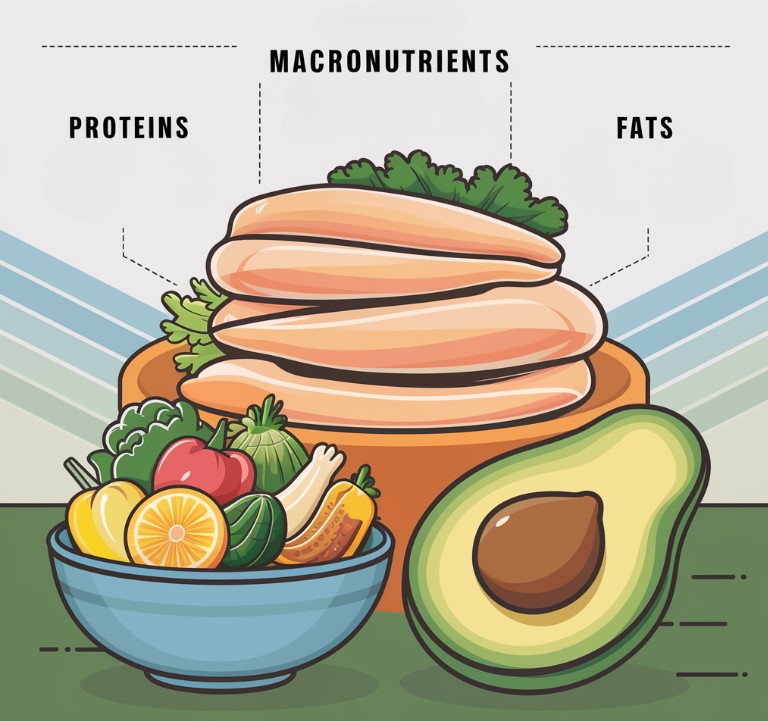Opioid abuse and addiction have become global public health crises. Of the treatment options available, Suboxone has proven itself helpful in breaking opioid addictions. With help from a Suboxone doctor, people can effectively forge through their journey to sobriety. Suboxone can’t treat addiction on its own. Effectively treating opioid addiction takes a holistic approach that addresses the addiction and its underlying cause. Still, this medication can be a helpful part of the process.
Understanding Suboxone and its Role in Sobriety

Suboxone treats addiction using a combination of buprenorphine and naloxone. It’s designed to help people manage opioid dependence and withdrawal symptoms. Buprenorphine binds to opioid receptors. It mimics the effects of opioids to an extent. In doing so, it helps to reduce cravings and withdrawal symptoms. Its effects aren’t as strong as true opioids, but it makes detoxing and the early stages of recovery more bearable.
As an antagonist, Naloxone works against opioids. It blocks their effects and helps keep people from misusing them. This combination of medications makes Suboxone an effective tool for treating opioid use disorder.
Initial Assessment and Developing a Treatment Plan
The first step Suboxone doctors, like those available at verticaltreatmentcenters.com, take in helping a patient overcome addiction is conducting a thorough evaluation. During this initial consultation, the doctor looks into the patient’s medical history. Substance use patterns, mental health, co-occurring conditions, and other factors are also important here. Based on those factors, the doctor creates a customized treatment plan.
Induction Phase
Next comes the induction phase. During this stage of treatment, the doctor starts the patient on Suboxone. This process requires careful monitoring and adjustments. Finding find the right dose of Suboxone to effectively reduce withdrawal symptoms and cravings without causing adverse effects often takes a bit of trial and error. The doctor also educates the patient on how to properly use Suboxone’s and potential side effects he or she should be aware of. Patient education is one of the keys to effective treatment.
Stabilization and Maintenance

After finding the right dose of Suboxone, the doctor monitors the patient to be sure he or she continues to respond well. Keeping the patient on a steady dose of Suboxone helps to minimize opioid cravings and withdrawal symptoms moving forward. In turn, the patient can focus on other aspects of recovery. Regular check-ups help the doctor address any issues that may arise. It also improves the likelihood of the patient staying committed to treatment.
Addressing Psychological and Social Factors
A Suboxone doctor realizes that sobriety goes beyond managing physical withdrawal symptoms in the early stages of treatment. These doctors acknowledge the close-knit nature of addiction and mental health. They understand that unresolved psychological issues and other problems can hinder recovery and even lead to relapses.
On the surface, certain substances can actually reduce the effects of mental health issues like anxiety and depression. That often leads people to self-medicate. Over time, they become increasingly dependent on those drugs, ultimately becoming addicted. If they try to stop taking those drugs on their own, they may experience severe and even potentially deadly side effects.
People often become dependent on opioids after injuries. Their physicians prescribe opioids to mitigate the pain of the injury. Some people overuse these medications in an attempt to deal with their pain. Others don’t abuse their pain medications at all. Despite taking them according to the doctor’s instructions, their bodies and minds come to rely on the effects of the medications.
In either situation, opioid addiction, physical health, and mental well-being are inextricably connected. As such, Suboxone doctors often collaborate with mental health professionals and other physicians to provide more comprehensive care. They may also recommend counseling, support groups, or other resources to address all the factors of addiction.
Harm Reduction and Relapse Prevention
Relapse is a common challenge in addiction recovery, but experts are quick to point out that it doesn’t mean failure. Suboxone doctors teach harm reduction strategies and relapse prevention techniques. They educate patients about potential triggers, coping mechanisms, and healthy ways to manage stress and cravings. By fostering resilience and self-awareness, they empower patients to bounce back from setbacks and continue to strive for sobriety.
Tapering and Gradual Discontinuation

As patients make progress in their recovery, Suboxone doctors may consider gradually tapering them off of the medication. Tapering patients’ doses little by little allows their bodies to slowly adjust to living without opioids. It reduces the risks of experiencing serious and overwhelming withdrawal symptoms as well.
Tapering is recommended as opposed to suddenly stopping Suboxone treatment. Stopping the medication altogether could have serious consequences and render the treatment ineffective. Doctors consider several factors to determine the appropriate pace at which to taper suboxone. They closely monitor patients during this phase to ensure a smooth transition.
Long-Term Support and Follow-Up
The journey to sobriety doesn’t end with the gradual discontinuation of Suboxone. Suboxone doctors provide ongoing support and follow-up care to help patients stay on track. This may involve regular check-ups, periodic drug testing, and ongoing counseling or therapy. By remaining engaged with their patients, Suboxone doctors serve as a constant source of encouragement and accountability. That helps to reinforce the patient’s commitment to recovery.
Transitioning through the stages of the recovery process can be exceedingly difficult. Many feel overcoming addiction is even more challenging in the later stages of treatment than in the initial ones. Follow-up care and ongoing support are essential for people who are dealing with opioid addiction. Reports show that people who don’t receive the support they need are far more likely to relapse. Follow-up care gives them the strength and reassurance they need to carry on.
Paving the Way for Recovery

Suboxone doctors play crucial roles in helping patients recover from opioid addiction. They use a holistic treatment approach that addresses all the factors of addiction. Through careful assessment, personalized treatment plans, and ongoing support, they guide patients toward recovery and help them stay on the path to success. They offer hope and a better chance for a drug-free life.
Related Posts:
- 20 Best Gaming Headset Under 50$ 2024 - for PC, PS4,…
- How Common Is Elder Abuse In Nursing Homes
- 15 Best Dog Food For Allergies 2024 - Adult, Puppy…
- 12 Best Car Wax For Black Cars 2024 - Protection and…
- Top 10 Best Outdoor Basketball Shoes 2024 - Durable…
- Top 10 Best Office Chair Under 200 2024 - Ergonomic…







